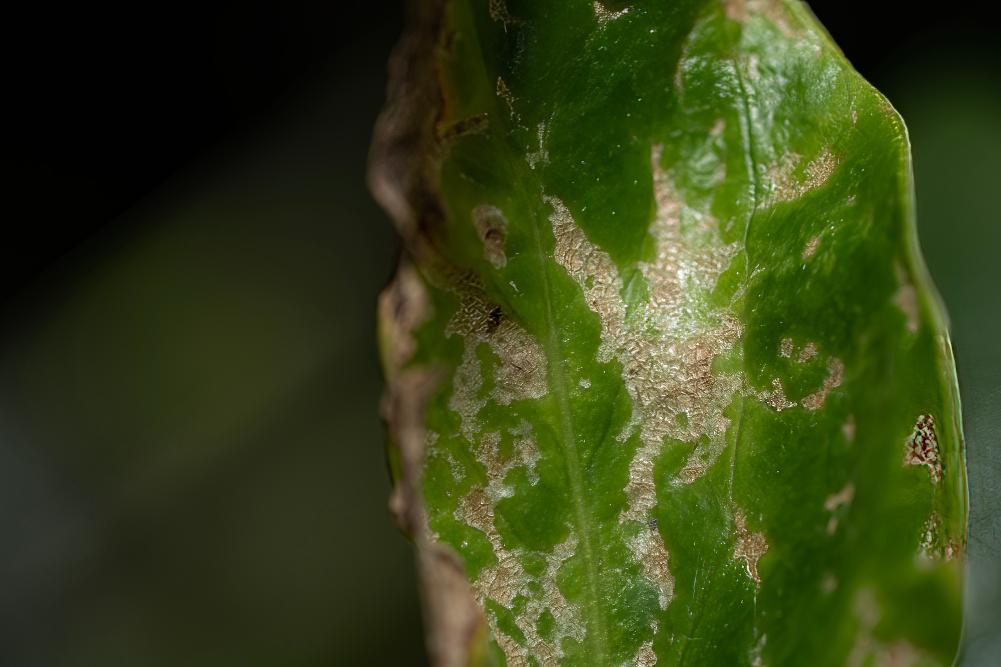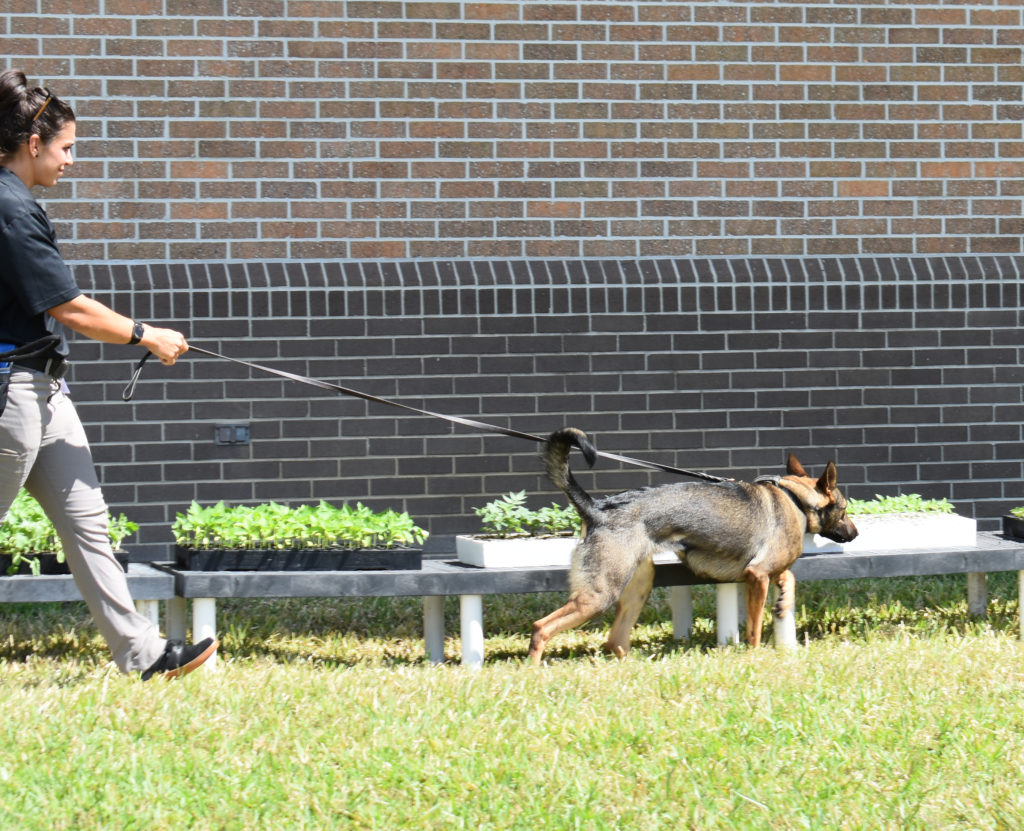By Clint Thompson
A new feature of the Florida Grower Citrus Show was a win for growers and leaders of the region’s vegetable crop industry. The annual event in Fort Pierce no longer focuses solely on Florida citrus production. The addition of vegetable-based seminars catered to specialty crop producers during the April 13 event.
Judging by the attendance, the audience was excited to see and hear from researchers at the University of Florida Institute of Food and Agricultural Sciences (UF/IFAS) and the U.S. Department of Agriculture (USDA), Agricultural Research Service (ARS), U.S. Horticultural Research Laboratory. Growers showed up to learn about recent trends and the latest research pertaining to vegetable crops. The topics included thrips and whitefly management, weed control, best management practices (BMPs), artificial intelligence, insecticide resistance and nematode management.
Thrips parvisipinus remains a threat to vegetable and nursery production throughout Florida. Cindy McKenzie and Muhammad (Zee) Ahmed, both with USDA ARS, provided updates on this new invasive species. It has now been observed in 18 Florida counties, including some in the northern part of the state. The pest is minute in size and can feed on multiple host plants, include various vegetable crops.

Photo by L.S. Osborne, UF/IFAS
Anna Meszaros and Craig Frey, Extension agents with UF/IFAS, provided updates related to South Florida. This included overviews of the new UF/IFAS Commercial Vegetable Production website, an online resource for research and pest and disease monitoring for growers.
Julien Beuzelin, UF/IFAS assistant professor in entomology, discussed various ways to mitigate insecticide resistance. Applications are not always effective. Timing, adverse weather conditions and poor choice of insecticides can lead to ineffective pest treatments.
“Sometimes you will do everything right and have control failure,” Beuzelin said.
He also stressed the importance of rotating insecticide modes of action, which will protect against resistance developing within a certain chemistry.
Scott Adkins, with USDA ARS, highlighted opportunities for area-wide management of whitefly and whitefly-transmitted viruses. Whitefly feeding can cause irregular ripening of the fruit and honeydew secretion. However, the viruses that whiteflies transmit, like cucurbit leaf crumple virus and tomato yellow leaf curl virus, can devastate a crop. Vegetables like squash, zucchini, cucumber and snap beans are susceptible to viruses transmitted by whiteflies.
Adkins also discussed detector dogs, which were featured during an outdoor demonstration at the event. These dogs can sense diseases in plants before they are planted in the field.

The focus on vegetables continued with a discussion on weed management. Nathan Boyd, associate center director of the UF/IFAS Gulf Coast Research and Education Center (GCREC) and professor of horticulture/weed science, discussed various ways in which herbicides may not be effective. These include misidentification of the weed and the wrong rate applied by the applicator.
Sanjay Shukla, a UF/IFAS professor in the Agricultural and Biological Engineering Department at the Southwest Florida Research and Education Center, provided an update on BMPs and where nutrient recommendations stand.
Johan Desaeger, associate professor of entomology and nematology at the UF/IFAS GCREC, updated attendees on nematode management in vegetables. One of the more effective means is fumigation. However, there may be a Telone II shortage this year.
“There’s likely going to be a Telone shortage. We just don’t know to what extent,” Desaeger said. “From what I’ve heard, it may be more impacting Telone II, which is the pure Telone, not so much the mixtures. I think that’s what is on the horizon.”
Erin Rosskopf, research leader with USDA ARS, concluded the seminar session with a focus on anaerobic soil disinfestation (ASD). Her research centers on this alternative method to conventional fumigation. The biologically-based practice reduces nematodes, diseases and grass weeds. ASD is geared toward use in buffer zones in conventional production and is used in organic production. It could be a viable alternative considering the uncertain future of fumigation.
“I think in Florida we’ll still have a pretty steady fumigation capability, but in California it’s fading fast,” Rosskopf said. “The cost of ASD is slightly higher than fumigation, but increased yield can compensate for that.”









